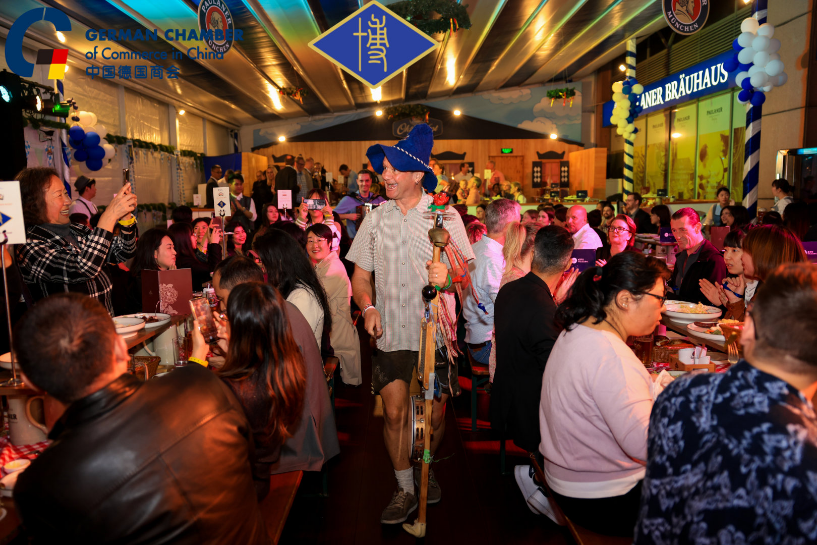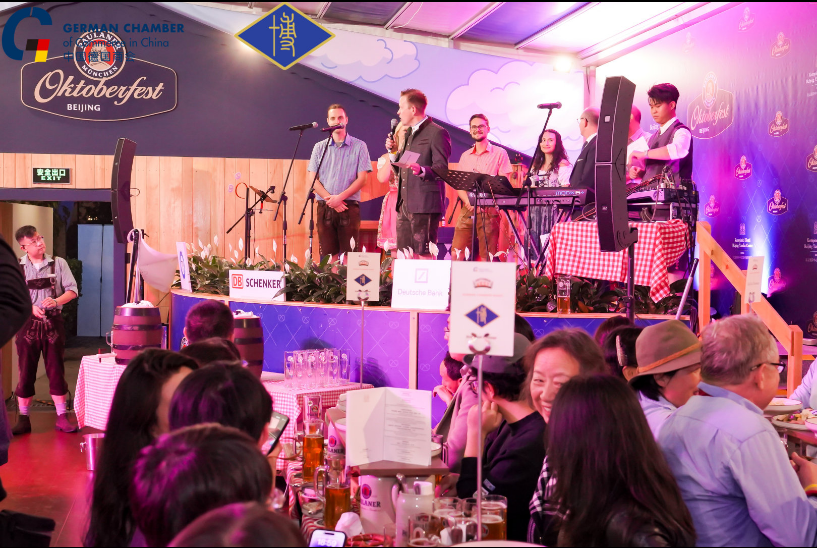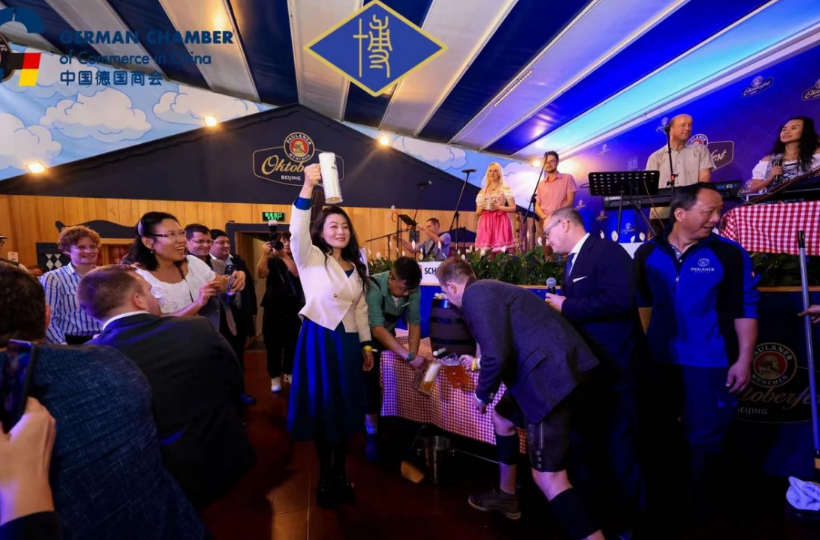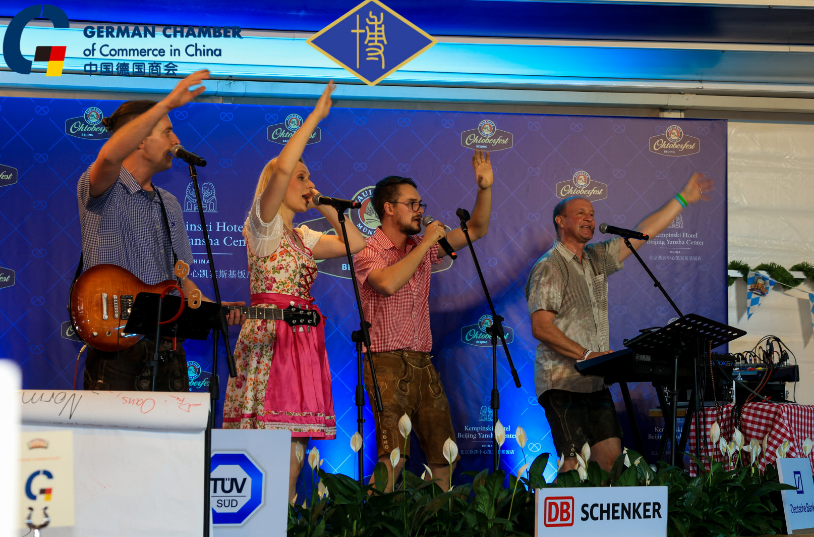Oktoberfest in Beijing:Journey Through Time and Traditions
發佈時間:2024-10-30 13:47:29 | 來源:Boshi Culture | 作者:推廣 | 責任編輯:楊俊康Oktoberfest in Munich is the world's largest folk festival and a vivid display of Bavarian culture,which oriented about more than 200 years ago and is applauded by tourists from all over the world every year ,more than 6 million people in 2024. The event on October 25 by German Chamber in Paulaner is a genuine Bavarian folk festival where guests can savor the flavors of Bavaria while embracing the festive spirit,and together with whom celebrated wishes for peace and jubilation for harvest.
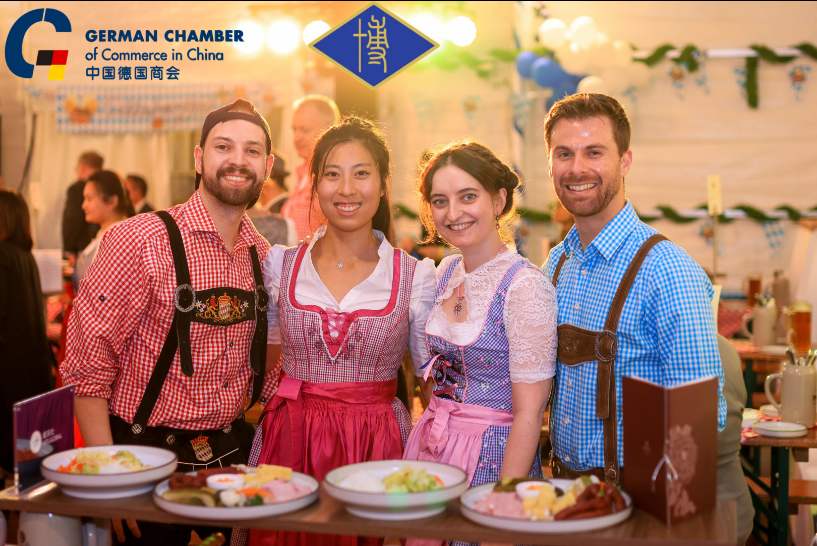
The Oktoberfest, held annually in Munich, Germany, is a celebration that embodies the spirit of Bavarian culture and tradition. Let's have a deeper look into its origins and customs:
Origins of Oktoberfest:The Oktoberfest traces its roots back to the early 19th century, with its inception closely tied to a royal event. On October 12, 1810, Crown Prince Ludwig of Bavaria married Princess Therese of Saxe-Hildburghausen, and the wedding was celebrated with a public festival that included horse races and other festivities. This event took place on fields in front of the city gates, which were later named Theresienwiese (Theresa’s Meadow) in honor of the princess. The success of this event led to its repetition the following year, and it eventually evolved into the annual tradition known today as Oktoberfest.
Customs and Traditions:
O’zapft is! - A key tradition since the 1950s is the opening ceremony where the Mayor of Munich taps the first beer keg in the Schottenhamel tent, exclaiming "O’zapft is!" ("It's tapped!" in Bavarian dialect), signaling the official start of the festival.
Beer Tents - Oktoberfest is known for its large beer tents, which house millions of attendees each year. These tents are filled with music, dancing, food, and, of course, beer.
Traditional Food - Oktoberfest is not just about beer; it's also a time to indulge in traditional Bavarian food such as pork knuckles, sausages, potato dumplings, pretzels, and gingerbread cookies. Nowadays, vegan and vegetarian options are also available.
Traditional Attire - It's customary for both locals and visitors to wear traditional Bavarian clothing. Women often wear dirndls, which are traditional bodices, and men wear lederhosen, traditional breeches.
Carnival Rides and Fairground Attractions - Over time, Oktoberfest has incorporated more elements of a carnival, including Ferris wheels, merry-go-rounds, and other fairground attractions.
Music and Dancing - Bavarian bands fill the air with vibrant sounds, and guests often dance to traditional music within the beer tents.
Parades and Cultural Events - Oktoberfest also features parades and cultural events that celebrate Bavarian heritage.
Community and Festivity - At its core, Oktoberfest is a celebration of community and festivity, inviting locals and visitors alike to partake in an event that has become a cornerstone of Bavarian culture.
These traditions and customs have been passed down for over 200 years, making Oktoberfest not just a beer festival, but a significant cultural event that showcases the warmth and spirit of Bavaria.
